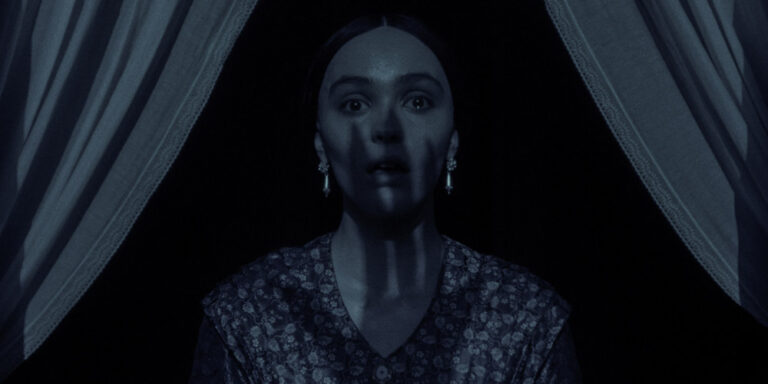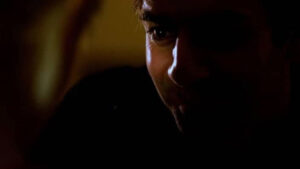Directed by Nahnatchka Khan
Written by David Matalon, Jen D’Angelo and Sasha Perl-Raver
Starring:
- Kiernan Shipka as Jamie Hughes
- Olivia Holt as Pam Miller
- Charlie Gillespie as Teen Blake Hughes
- Lochlyn Munro as Adult Blake Hughes
- Troy Leigh-Anne Johnson as Teen Lauren Creston
- Liana Liberato as Tiffany Clark
Rating: ![]()
In Totally Killer, time travel is treated with startling indifference—a narrative device so casually deployed that its protagonist, Jamie Hughes (Kiernan Shipka), exhibits little more than mild curiosity upon being thrust into the past. This curious lack of wonder encapsulates the film’s broader issue: an uninspired genre hybrid that borrows liberally from its predecessors while failing to grasp their essence.
Nahnatchka Khan’s slasher-sci-fi-comedy follows Jamie’s accidental journey to 1987, where she attempts to thwart a serial killer and rewrite history to spare her mother’s fate. The premise is promising, yet its execution is regrettably haphazard. Instead of deftly interweaving horror, comedy, and science fiction, the film merely stacks them atop one another, never achieving cohesion. Back to the Future is repeatedly referenced, though one suspects these allusions exist more as superficial nods than studied homages.
What unfolds is less a satire of 1980s pop culture than a perfunctory dismissal of its excesses. Jamie, a modern figure trapped in an era of unchecked political incorrectness, stands as a postmodern anachronism amid caricatures of the past. The film eagerly highlights the misogyny, homophobia, and unbridled hedonism of the decade, yet its scrutiny lacks nuance—it is neither sharp nor revelatory, serving instead as facile mockery disguised as commentary.
Beyond its thematic shortcomings, Totally Killer struggles structurally. The horror sequences, though intermittently compelling, are undermined by an imbalance of tone, with comedy frequently undercutting tension. Its science-fiction elements feel like an afterthought—less an integral component of the narrative than a convenient means of advancing the plot. Worse still, its attempts at self-awareness fail to translate into genuine wit, leaving in their wake a film that is more awkward than amusing.
The greatest irony, however, is that this film has already been made—far more successfully—in The Final Girls (2015). With fewer resources but abundant creativity, The Final Girls approached its meta-horror premise with sincerity and affection for the genre it dissected. Totally Killer, conversely, squanders its potential on gimmickry, rarely offering insight beyond surface-level parody.
While Totally Killer occasionally stumbles upon moments of competence—its most vicious sequences benefiting from unexpectedly strong performances—the film as a whole lacks conviction. It is a visually polished but ultimately uninspired exercise in genre fusion, neither satirical nor substantive. If time travel were real, one might wish to return to a moment before watching it.









